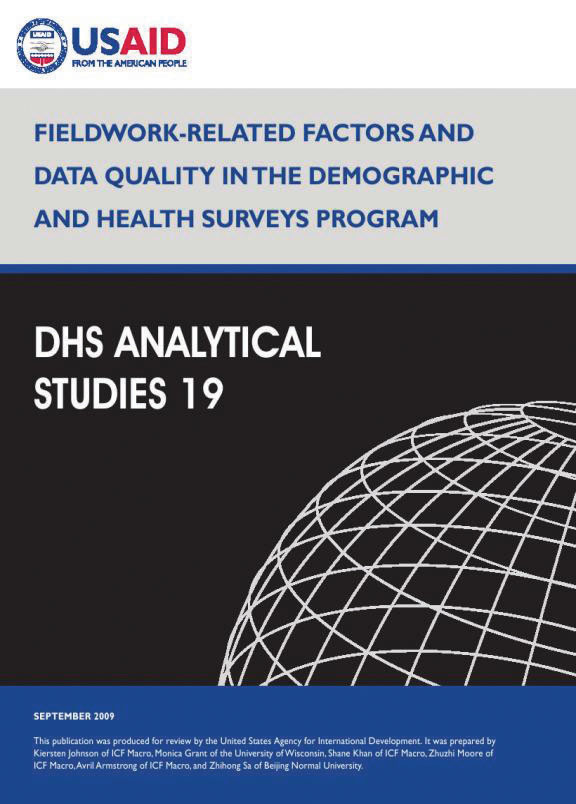- PUBLICATIONS
- JOURNAL ARTICLES
- ORDER PUBLICATIONS
Publications Summary
- Document Type
- Analytical Studies
- Language
- English
- Recommended Citation
- Johnson, Kiersten, Monica Grant, Shane Khan, Zhuzhi Moore, Avril Armstrong, and Zhihong Sa. 2009. Fieldwork-Related Factors and Data Quality in the Demographic and Health Surveys Program. DHS Analytical Studies No. 19. Calverton, Maryland, USA: ICF Macro.
- Download Citation
- RIS format / Text format / Endnote format
- Publication Date
- September 2009
- Publication ID
- AS19
Download
 Fieldwork-Related Factors and Data Quality in the Demographic and Health Surveys Program (PDF, 3511K)
Fieldwork-Related Factors and Data Quality in the Demographic and Health Surveys Program (PDF, 3511K)
